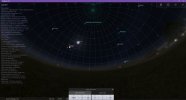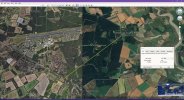To me it makes more sense to argue that Halt did actually see something 'coming down'.
Oh, you might very well be right- he might have misidentified 'normal' lights in the sky.
But some of the airmen have consistently stated that they misidentified the lighthouse.
As the base almost certainly did have nuclear materials, it would have made sense to take a geiger counter along to make sure nobody was pilfering nuclear material.
I think it's very,
very unlikely that Halt would take a Geiger counter with him for that purpose.
If he believed radioactive material was being removed (presumably from weapons) without authorisation, that would be a
very serious matter indeed.
It would be handled by specialised NEST teams or their equivalents, not a deputy base commander and whichever USAF security police were on duty.
There would have been a corresponding, larger-scale effort by UK authorities.
They would not be happy with weapons-grade isotopes being lost on their territory, and there would have been political repercussions (which, thank goodness, never happened).
Covertly removing fissile material from the physics package of an assembled device is, I would think, extremely difficult. Not least because many designs (AFAIK) involve a spherical shell of high explosive surrounding a smaller sphere of fissile material, and they are kept in secure storage and under armed guard.
Geiger counters were widely available to US, UK and other NATO military units and establishments in the early 80's; you would expect
any major establishment hosting combat units to have them, whether those units had anything to do with nuclear weapons themselves or not.
The working assumption was that forces would continue to function as best they could even if chemical, biological or nuclear strikes were made by the potential enemy.


